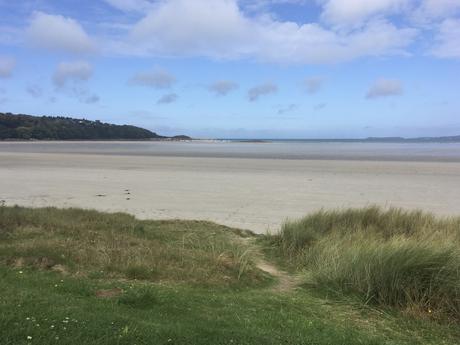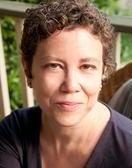 Brittany Coast. Photo by Susan Katz Miller
Brittany Coast. Photo by Susan Katz Miller This was a big decade for me. Both personally and professionally, the past ten years have featured dizzying highs and devastating lows, interwoven achievements and heartbreak. I am, frankly, exhausted just thinking back on it. And yet, it seems important to do just that-to try to gain perspective and a sure footing as I gaze out at the horizon of the next decade.
I have been laid low. I experienced more personal loss in this decade than in my whole previous half-century. The big, gorgeous, three-generation interfaith family I depicted in my first book, Being Both, changed dramatically. I lost my father, my mother, and my mother-in-law. I lost my teenage nephew. My husband and I each had to empty and sell multigenerational family homes, severing ties to two formative places in our entwined family history. And this year, we lost our 17-year-old dog.
And yet I wrote, and spoke, and advocated. Somehow, in this same decade, my experience as a journalist on three continents, and my lifetime in an interfaith family, all culminated in a new body of work. I felt called to document interfaith family life, and to speak up and speak out to defend the full diversity of our experiences. In this spirit, I published two books, including The Interfaith Family Journal this year, and ten years worth of essays (368 of them) on this blog. I published in The New York Times, The Washington Post, and a dozen other media outlets. I was invited to speak in more than 30 cities in more than 15 different states and countries. And I founded the Network of Interfaith Family Groups, a national support hub for interfaith families celebrating two or more religions.
This work, making space for interfaith families, has often felt risky. I have received threats from organizations and individuals, and nasty attacks in the press. I have had people refuse to share a stage with me. At least one brave non-profit lost a funder because they invited me to speak. Sometimes it's hard to believe that all of this tsuris (Yiddish for troubles) is over families that insist on loving across boundaries.
At the same time, this work continues to feel essential. And the work is not done. Interfaith families around the world are still in danger. Interfaith families in the US still face exclusion, misunderstanding, and intolerance. Meanwhile, many of us, interfaith and monofaith, are reevaluating traditional religious systems and institutions, seeking meaningful connections to carry forward.
I do see progress. After a decade of writing and speaking about the joys of being part of an interfaith family, about embracing each other, and about the benefits of interfaith education for all adults and children, I see these ideas catching on. Or at least they are now deemed worthy of debate. I see this progress in the Jewish institutional world, and in other religious, spiritual and humanist contexts.
And I do have hope. I see interfaith families inspiring and innovating new ways of being religious, spiritual, and humanist, going forward. In this decade, I have witnessed interfaith families coming together to create our own communities, use our own voices, and tell our own stories. As we begin to take on leadership roles in religious, spiritual, and secular arenas, it will become harder to talk about us, without us. May the skills and insights we have gained living as interfaith families benefit everyone, in all of our cultures, in all of our countries, as together we navigate 2020 and beyond.
Susan Katz Miller is an interfaith families speaker, consultant, and coach, and author of Being Both: Embracing Two Religions in One Interfaith Family (2015), and The Interfaith Family Journal (2019). Follow her on twitter @susankatzmiller.

